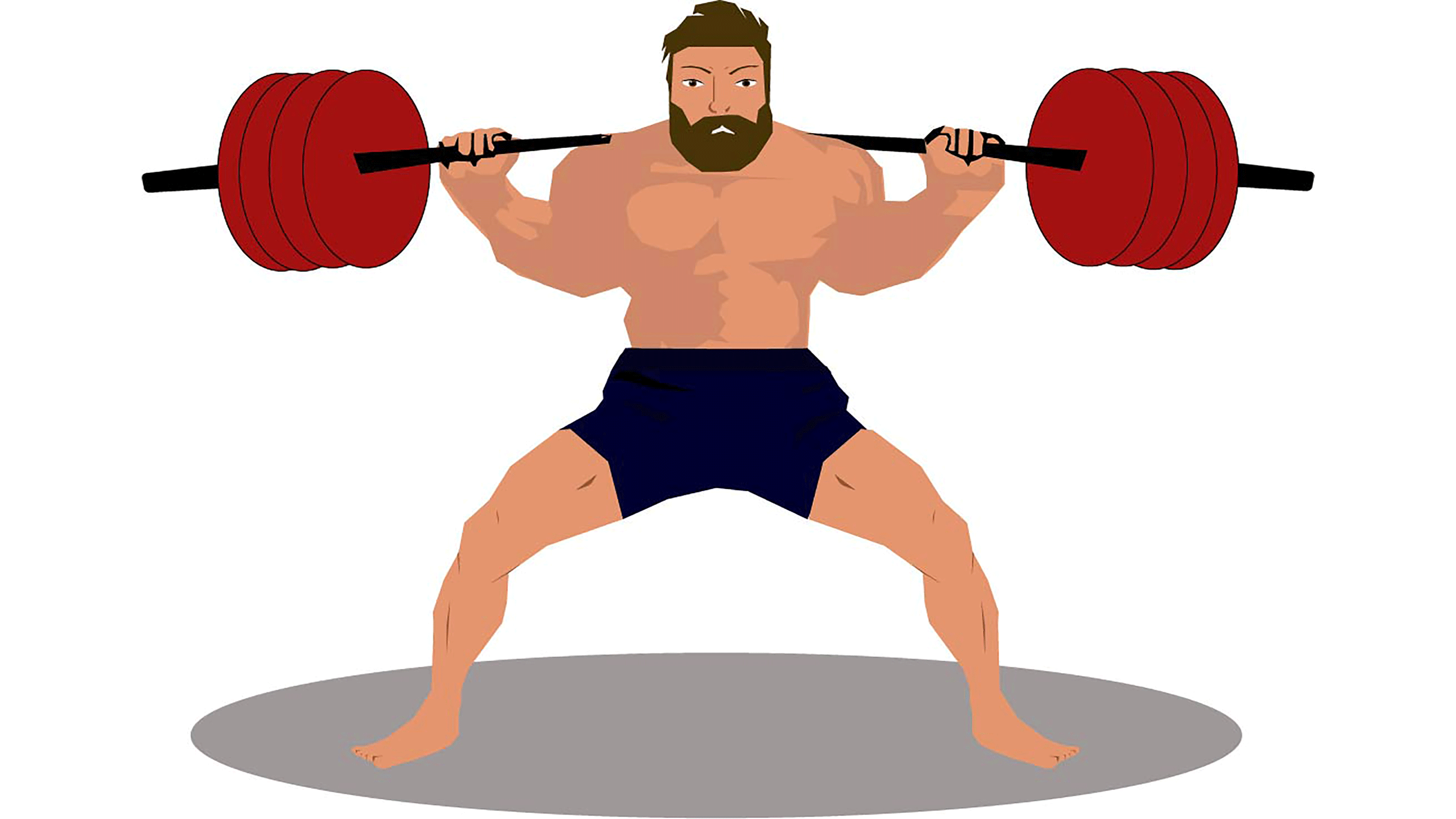By Donald Higney
If you’ve ever been to a Ryerson recreational facility and wanted to push yourself more, there’s an activity that might give you that challenge. Ryerson Barbell Club is a club that takes place right in the MAC.
Barbell is one of the 17 competitive clubs that students can join at Ryerson. Unlike varsity athletics and recreational clubs, competitive clubs compete in at least one meet against other schools while recreational clubs don’t.
Ryerson Barbell trains twice a week and has annually hosted one competition at the MAC for the past two years. Their last competition was in June 2019, with the 2020 competition being cancelled because of COVID-19.
Barbell focuses on two types of training: Olympic weightlifting and powerlifting—which differ by the movements involved.
Olympic weightlifting focuses on elevating the barbell overhead in two competitive tries, using different techniques called the ‘snatch’ and the ‘clean and jerk.’ The goal of the snatch is to lift the barbell from the ground over the participants head in one motion.
On the other hand, the clean and jerk uses two different movements. During the clean, the participant lifts the barbell from the ground to a resting position on the deltoids, a muscle around the shoulder. To complete the jerk, the participant lifts the barbell over their head, finishing with their arms and legs extended as straight as they can.
The barbell is used differently in powerlifting, where participants have to complete three different types of lifts that are more stationary: the squat, the deadlift and the bench.
“It’s not what’s on the bar that makes you happy…It’s the mentality and the drive that you have going into the sport”
The club started in 2015 when former varsity athletics strength and conditioning coach Rose Lewis noticed how many people that worked out at the MAC weren’t athletes . Lewis felt the need to help develop some of the potential that those at the gym showed. In their first official training session, seven people showed up. When Lewis left in 2018 there were about 45.
“The club took off like crazy and grew into this awesome, big community,” said Lewis.
At the beginning, the club had to work through the lack of space and equipment at the MAC. Members had to share the space with Ryerson athletes as well as regular gym-goers. Now the club trains in the varsity section of the MAC and has standard Olympic weightlifting and powerlifting equipment.
Another challenge was making sure newcomers to the club felt comfortable and safe. Some club members also lifted competitively for other gyms, so Lewis gave some people within the club the opportunity to be leaders, helping out others in their technique.
That focus on teamwork also came in handy when it was time to host their first official meet in 2018. The club had to make sure everything was up to standards, including building a platform to compete on from scratch because the platforms in the weight room were not up to Ontario Powerlifting Association’s standards.
“It definitely established us as a club,” said Lewis. “It put our name out there a ton and kind of gave us the recognition that we were hoping for.”
When Lewis left Ryerson in May 2018 to get married, Jackie Liang took over. The club experienced another jump in membership to the point that they had to establish two days of training instead of one to fit everyone into the gym.
“We were so full after orientation week that every member was unable to do their workout,” said Liang.
For those students who choose to join the club, the balance of school and training/competing isn’t easy. Fifth-year mechanical engineering student Githendra Sagararatne would have been commuting from Ajax if not for the cancellation of in-person classes.
“The Barbell Club, for me, was a community where I could de-stress”
With a heavy course load and a long commute, it would be difficult to find time to stay in shape, let alone take part in a club that helps him do so. However, he was previously able to manage a four-day-a-week training schedule for three hours each session.
“The Barbell Club, for me, was a community where I could de-stress, even in a very stressful situation,” said Sagararatne.
Being an international student, the responsibilities of school weighs on Sagararatne more. Originally from Sri Lanka, he said he pays double the tuition of a domestic student, but being in the club helps him keep track of time.
“I think knowing the fact that I don’t have time to screw around, just naturally keeps me in check and that there are certain sacrifices I need to make.”
Some of the members of the club, including third-year sport media student John Nardi, balance training with Ryerson Barbell with training at another gym under a professional coach. In a week, Nardi said he trains nine or ten times—most days twice. Balancing that with school, work and a podcast means he can’t waste any time.
“It’s pretty demanding, but if you learn how to manage your time, it really teaches you a lot,” said Nardi.
Both Nardi and Sagararatne are accomplished lifters. Nardi won the Junior Ontario Championships in 2019 and Sagararatne won Seneca’s College and University Meet three times with Ryerson Barbell, both in their respective weight classes.
Brian Young is now the president of Ryerson Barbell because of Liang’s graduation. Since the COVID-19 pandemic started, Young has made personalized programs for those in the club and started virtual competitions to recreate the sense of community.
Despite the intimidation factor that could come with lifting heavy weights at the beginning, those in the club want it to be known that Ryerson Barbell is a safe space for everyone.
“It’s not what’s on the bar that makes you happy,” said Young. “It’s the mentality and the drive that you have going into the sport.”













Leave a Reply